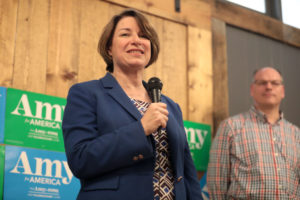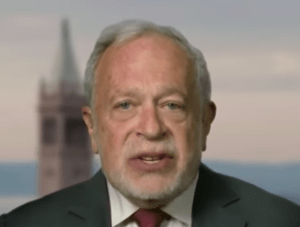Living With Climate Change
Because the problem is likely to stretch on for decades, even centuries, even if humankind acts immediately, we had better get used to the idea of adapting.WASHINGTON — “I’ve seen fire and I’ve seen rain,” James Taylor sang sweetly, back when I was in college and both of us had more hair.
If Taylor were writing that song today, given that much of the country is experiencing severe drought, he might want to rethink the “rain” part. “Fire” would still resonate with listeners, though — especially out in Malibu, where some of the nation’s most picturesque and expensive real estate is in flames.
Atlanta is so parched that it’s running out of water. The canyons of Southern California are ablaze. Here in Washington, temperatures have been climbing into the 80s — in late October. Can all this be blamed on that “inconvenient truth” that Nobel laureate Al Gore keeps warning us about? Is climate change — often imprecisely called “global warming” — loosing plagues upon the land?
No. Not exactly. Maybe. Probably not. Could be. Nobody knows. You can pretty much take your pick, since it’s not possible to link any specific meteorological event — the strength of the fire-fanning Santa Ana winds in Southern California this year, for example, or the rainfall deficit in the Southeast, or an unusually balmy fall in the Northeast — with climatological changes that take place over decades or centuries and span the entire globe.
The weird weather does tend to concentrate the mind, though. Even George W. Bush acknowledges the scientific consensus that climate change is real. Most people, even conservatives, now have no problem taking the next step and acknowledging that human activity — the burning of fossil fuels, and the release of heat-trapping carbon into the atmosphere — is causing climate change, or at least accelerating it.
Beyond those fundamentals, though, are a couple of even more inconvenient truths that few seem ready to come to terms with.
One is the fact that if climate change follows its projected course, many people around the world will suffer. But some people, as George Orwell noted, are more equal than others.
“It’s the poorest of the poor in the world, and this includes poor people even in prosperous societies, who are going to be the worst hit,” said Rajendra Pachauri, chairman of the Intergovernmental Panel on Climate Change, the scientific body that shared the Nobel Peace Prize with Gore.
If sea levels rise as the climate models predict, the first people to be flooded out of their homes will be impoverished residents of coastal megacities in the Third World. If warmer temperatures allow tropical diseases to spread, poor countries with underdeveloped health care systems will find it hardest to cope. If, over time, the number of exceptionally large and intense tropical storms increases … well, we saw who suffered most when Hurricane Katrina hit the Gulf Coast.
For the Inuit in Northern Canada, a warming planet means melting permafrost, the disruption of the food supply and a devastating blow to an ancient way of life. For farmers in temperate zones, it means longer, perhaps more productive growing seasons. And for a lawyer in Philadelphia, it means the ability to book a tee time at the local country club well past Halloween.
The bronzed and Botoxed citizens of Malibu notwithstanding, wealthy individuals and societies will be less threatened by climate change than will be the poor, at least for the foreseeable future. Pretending otherwise won’t make it any easier to forge a political consensus about how to proceed.
Conservation is essential, but won’t solve the problem. Capturing carbon dioxide and storing it underground may sound like a magic bullet — all the politicians love it — but there’s no guarantee that the gas won’t eventually just seep back out into the atmosphere. Making ethanol from corn is great for Iowa farmers but doesn’t radically alter the energy equation. Nuclear power offends many sensibilities, including mine, but almost surely has to be part of any truly effective solution.
That brings me to the other really inconvenient truth. As Pachauri recently told the United Nations General Assembly: “The inertia of the system that we have is such that climate change would continue for decades and centuries even if we were to stabilize the concentration of gases that are causing this problem today, which means that adaptation is inevitable.”
Even if we all started driving electric cars tomorrow — and even if we convinced the governments of China, India, Brazil, South Africa and all of the developing world that their people shouldn’t drive cars at all, or even have electricity — the world would keep getting warmer.
Debating how to halt climate change is necessary. Figuring out how to live with it, unfortunately, is urgent.
Eugene Robinson’s e-mail address is eugenerobinson(at)washpost.com.
© 2007, Washington Post Writers Group
Your support matters…Independent journalism is under threat and overshadowed by heavily funded mainstream media.
You can help level the playing field. Become a member.
Your tax-deductible contribution keeps us digging beneath the headlines to give you thought-provoking, investigative reporting and analysis that unearths what's really happening- without compromise.
Give today to support our courageous, independent journalists.






You need to be a supporter to comment.
There are currently no responses to this article.
Be the first to respond.